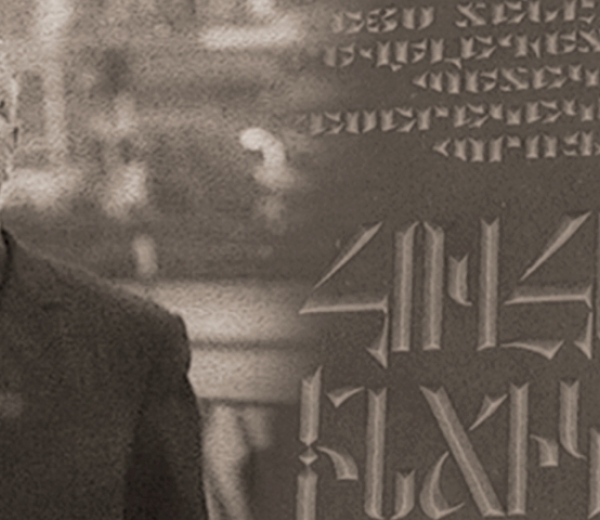Lessons from the past
By Rouben Indjikian, Professor at Webster University Geneva
On September 25, 2013 the Institute of Oriental Studies of the Academy of Sciences of Armenia marked the 100th anniversary of its founder Hovhannes Indjikian, a well-known historian. Why should a former colleague who passed away in 1990 be still so honored? Above all because of the heritage of scientific and exemplary human and patriotic values and acts, which he bequeathed to his younger colleagues and all of us.
While ex-colleagues remember mainly his role in creating and building up the Institute, family members, friends, and well-known historians recall Hovhannes Indjikian as an ardent patriot and defender of human values and dignity. His key role in maintaining the collective memory of Armenians martyrized throughout the tragic period of Armenian Genocide of 1915-1921 was especially important.
The program of Armenia TV aired on September 25, 2013 in memoriam of Hovhannes Indjikian singled out as an especially notable example of his acts his letter to the head of Soviet Armenia, Yakov Zarobian. The letter was Indjikian’s initiative, and was written in 1964 together with two other historians, Tsatur Agaian and John Kirakossian. They proposed construction of a memorial to mark the 50th anniversary of the Armenian Genocide and to serve as a place of remembrance for future generations. After huge demonstrations in Yerevan on April 24, 1965 Moscow wisely accepted the proposal of the prominent Armenian historians, which was supported by Zarobian. That is how Hovhannes Indjikian became one the initiators of the Tsitesernakaberd Memorial devoted to the victims of the Armenian Genocide.
In Armenia, however, Hovhannes Indjikian was known as a defender of a human dignity and values since much earlier, when at the age of 40 and a member of the political elite, he had enough courage to defend the record of Grigori Arutyunov, then head of Soviet Armenia, during a long meeting of Central Committee, which had been called to depose and punish him in accordance with the still prevalent standards of Stalinist repression. While the majority of the meeting’s participants attacked Arutyunov, Indjikian dared not only to propose that Arutyunov’s major achievements be acknowledged but that he be assigned further official tasks. The result of meeting – unprecedented for the period – was that Arutyunov was not even jailed. Thanks to this act of courage and civic responsibility in 1953, well before the destalinization got under way, Hovhannes Indjikian became famous among the elite as someone who dared to put principles of decency before opportunism.
Having managed to create the Institute and build up a team of devoted orientalists and researchers (Ruben Safrastyan, currently the Director of the Institute, was Indjikian’s PhD student), Hovhannes Indjikian concentrated on academic work and among other achievements wrote monographs on the bourgeoisie of the Ottoman Empire (based on his second doctoral thesis) and on social psychology of genocide. These fundamental works inspired new research. While working on the history of development of capitalism in the Ottoman Empire, Indjikian came to a conclusion that one of the reasons for the Genocide was the desire to repossess the wealth of the Armenian entrepreneurs who controlled considerable parts of the industries and finance of the Ottoman Empire. In that respect Hitler’s regime followed the example of Young Turks in its attacks on Jews and the eventual perpetration of the Holocaust. This also explains his famous words “…Who, after all, speaks today of the annihilation of the Armenians?…”, as part of his encouragement of attacks on Jews.
In his book, “Social Psychology of Genocide”, Indjikian tried to ponder the concepts of racial supremacy and hatred, which underlie these crimes against humanity and explain why mobs sometimes go for destroying minorities. By analyzing the ideological underpinning of such behavior he came to the conclusion that it was based on education and cultural conditioning, which promote the ideas of exceptionalism and supremacy of a dominant ethnic group as means of control and repression against other ethnic groups. In the case of the Genocide, Armenians were considered an obstacle to achieving the chimerical idea of replacing the decaying Ottoman Empire with the new project of pan-Turkism.
The ideas of Professor Hovhannes Indjikian, a prominent historian and the defender of collective memory of Armenians as victims of Genocide, should be an integral part of the combat against current Turkish negationism. Moreover, racism, intolerance and various forms of exceptionalism still create major problems for the mankind, which needs to concentrate on addressing the existential global challenges. While Hovhannes Indjikian’s work was based on regional and Armenian history and, in particular, the Genocide of 1915-1921, his warnings none the less have a contemporary relevance.

